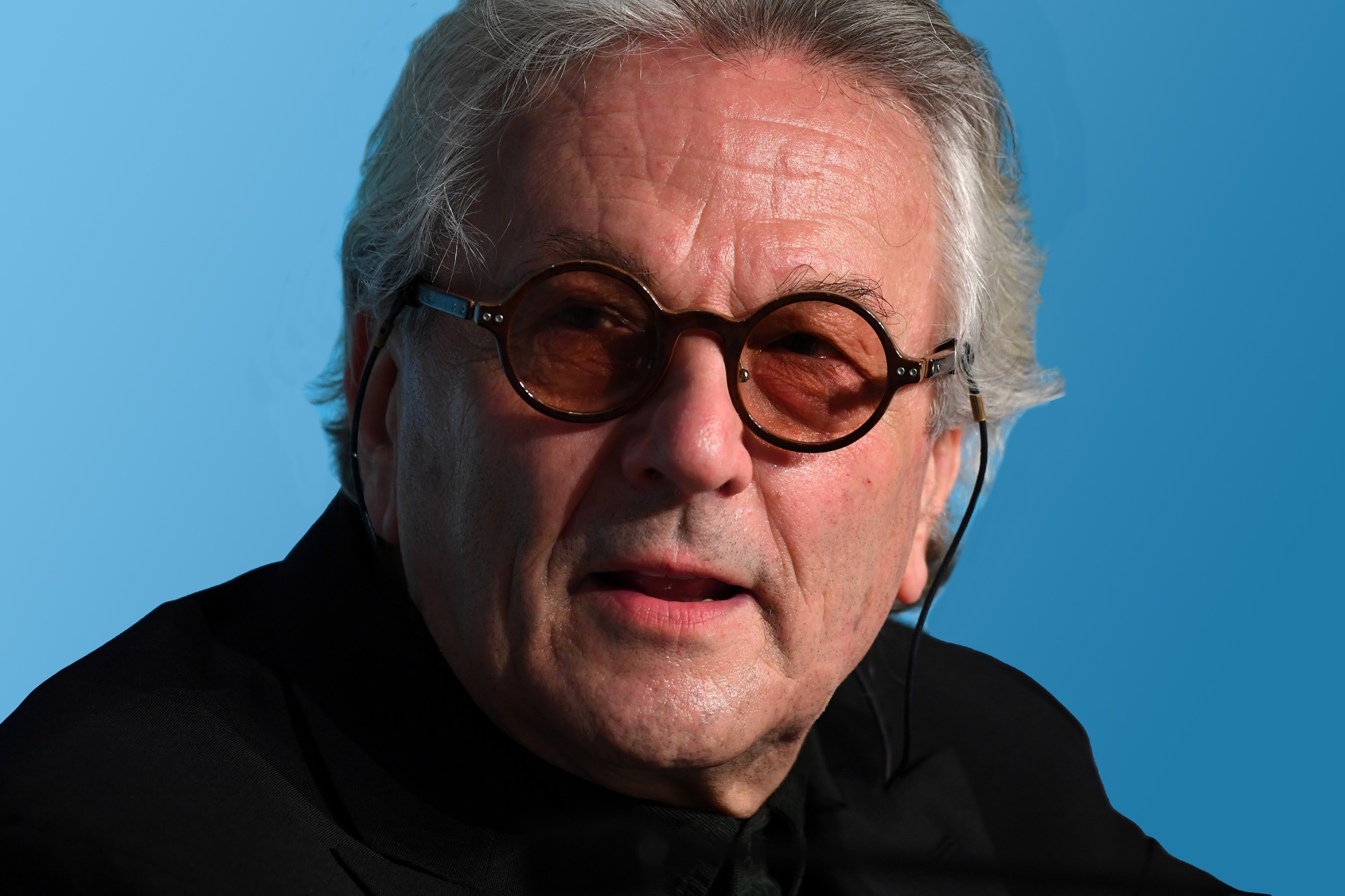
- Interviews
George Miller – Taking a Sip of Djinn
Golden Globe nominee George Miller is an original. For the past fifty years, the Australian filmmaker has taken audiences on astonishing explorations, from apocalyptic turmoil (Mad Max) to dark fantasy (The Witches of Eastwick) to sentimental humanity (Babe). In his latest adventure, he presents Three Thousand Years of Longing, a celebration of the art of storytelling.
Based on a 1994 AS Byatt novella, the story, written by Miller with his daughter Augusta Gore, introduces us to Alithea Binnie (Golden Globe nominee Tilda Swinton), a professor of narratology who, during a work engagement in Istanbul, accidentally breaks a glass bottle she purchased at a store. Little does she know, she has unleashed a Djinn (Golden Globe winner Idris Elba) who offers her the chance for three wishes. Before the aspirations are granted, the two spend time in deep conversation about love, romance, loneliness, and life that takes this Aladdin-inspired adventure to a much more cerebral level.
For the director, it is the endurance of storytelling that intrigued him. Noting how our current movie narrative of Marvel and DC films are basically vestiges of Greek, Norse, and Roman mythologies, his approach to his new film was just using this form of narrative but adapted to the time. Here he presents another echo of the past but adjusted to have meaning to us now.
During the 75th Cannes Film Festival, Miller sat down to meet the press at the Palais and talk about his journey to bring the film to the big screen.
This film has such a whimsical, literary, fantastical quality. How did you approach adapting the short story into such a daring movie?
Most stories we tell are allegorical. They have a poetic dimension. Meaning, that they’re open to interpretation, depending on who’s watching them. We watch films according to our own lived experiences and worldview. That’s why I think fantasy stories lend themselves to dealing with much more complex things than, say, a documentary or something more reality-based. Being aware of that and being a storyteller, it’s something constantly going on in your mind. Ultimately, this was why I was really attracted to the story in the first place. Why I wouldn’t let this go. Stories are definitely there to enchant us in some way, even the dark stories, even the stories that might seem rather dry. We are looking to be transported. But it always had to be rooted in reality. It had, somehow, to be connected with that.
One presumes then you have to pay special attention to casting to get actors who can convince the audience of this leap of faith.
When we were writing the script, I sort of had a good impression of most characters. When I met Tilda, I had no idea what she like. I only knew her from her films, but it was hard to figure out who she was from the films. That means that she’s obviously a great actor. So, we had this first meeting and I suddenly thought, ‘Oh my God, she is Alethia.’ But I had no idea who could play the Djinn. I couldn’t initially name anyone. But two of my collaborators went to the BAFTA’s and had only one mission, to meet Idris Elba. If I hadn’t done that – and if I hadn’t met Tilda earlier and gotten a strong sense of her — I would not have had any idea who could play the Djinn. I’m sure there are a lot of people and a lot of suggestions. There is an element of Idris being very grounded, no matter how fanciful the performance was.
You play with various timelines in the film. How did you work with Idris to keep an emotional flow for him?
I think the best way to answer the question is the very first conversation I had with Idris, when he said, “Listen, I’ve read the script and I’d like to do the film.” He went on: “But I would love to shoot this backstory, the flashbacks, first, so that when I’m actually in the hotel room telling Tilda, I have been through those experiences.” The second thing he said was “I would like to actually film me saying that. Even if you don’t use the picture, at least I’m telling somebody a story, I’m telling Tilda the story.” And that, I think, goes to answer your question. That’s basically how it happened. Until that conversation, it never occurred to me how that was the most obvious thing to do. That works. The bouncing between the two-story works.
What does the film say about your viewpoint toward magic?
I can pick up my phone and I can coax out of the air, as we say, any bit of information that’s out there. That’s a kind of a magical thing. If I tried to explain that to my grandfather, he would think that would be a magical time. No doubt in 30, 40, or 50 years, things will be indistinguishable from magic, things that we could not have imagined. That’s always the way we are as human beings. I was very interested to read, during the pandemic, how humans dealt with the plague centuries ago, before we had any idea of germ theory. There was no knowledge of that. Now, every little kid basically knows about it. So, explanations were done through narratives, through stories that told you how to be careful.